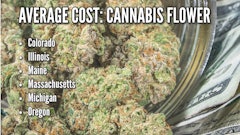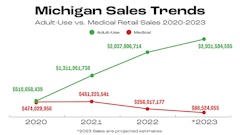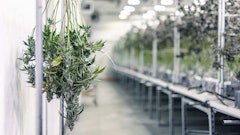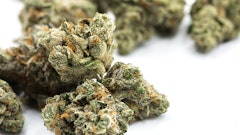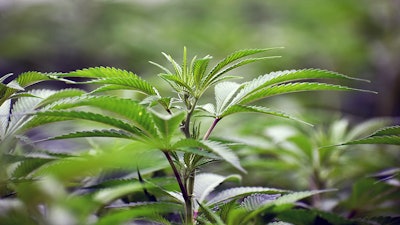
The first state east of the Mississippi to legalize adult-use cannabis, Massachusetts now has $5 billion in total sales to show for since launching an expanded retail market in November 2018.
As of January 2023, the Bay State had recorded more than $4 billion in adult-use sales and nearly $1 billion in medical sales since the commercial launch more than four years ago, according to Massachusetts Cannabis Control Commission (CCC) sales data.
But as price declines began catching up with consumer demand in 2022, the fat-and-happy business days of early legalization began leveling off for licensed retailers.
Cannabis shoppers and medical patients spent nearly $1.8 billion at Massachusetts dispensaries in 2022, representing 7% year-over-year growth. While it marked another record year for the state’s retail industry, sales have approached a plateau following 69% growth in 2021 and 76% growth in 2020.
| Year | Adult-Use | Medical | Combined | Growth |
|---|---|---|---|---|
| 2022 | $1,483,898,510.29 | $271,291,012.19 | $1,755,189,522.48 | 7% |
| 2021 | $1,331,299,790.53 | $312,871,156.77 | $1,644,170,947.30 | 69% |
| 2020 | $702,609,773.36 | $270,226,195.19 | $972,835,968.55 | 76% |
| 2019 | $433,096,256.80 | $120,537,352.77 | $553,633,609.57 | n/a |
Putting the brakes on Massachusetts’ retail growth in 2022 was a 41% price decline for dried flower over a 12-month period: The average adult-use retail price per ounce dipped from $365 to an all-time low of $216 (December 2021 vs. December 2022), according to CCC.
And yet that price still has a long way to fall compared to Michigan, a similarly aged adult-use market where average flower prices sank to $91 per ounce in December.
In addition to pricing dips, Massachusetts’ cultivation output continued to soar throughout 2022. Based on CCC data through November, the state’s licensed growers were projected to harvest nearly 1.1 million plants in 2022, a 39% increase from 2021.
| Year | Plants Harvested | % Change |
|---|---|---|
| *2022 | 1,093,149 | 39% |
| 2021 | 787,558 | 74% |
| 2020 | 452,145 | 83% |
| 2019 | 246,998 | n/a |
*Projected figure
While the harvested plant supply grew more rapidly during earlier years of legalization, the increasingly accelerated price drops in 2022 indicate a market that is entering its mature years—when licensees have to operate on thinner margins to generate revenue.
At the wholesale level, the average flower price in Massachusetts fell to $1,416 per pound in January 2023, a 58% decrease from the previous January, according to Cannabis Benchmarks, an industry source for cannabis wholesale pricing and analysis.
That 12-month price plunge came after wholesale cannabis flower consistently commanded more than $3,000 per pound from late 2019 through 2021 in Massachusetts.
| Month | Wholesale |
|---|---|
| Jan. 2023 | $1,416 |
| Jan. 2022 | $3,387 |
| Jan. 2021 | $3,558 |
Source: Cannabis Benchmarks
The wholesale and retail price dips come as more businesses gain entry into the state’s marketplace.
As of Jan. 12, there were 462 cannabis retail licenses approved by Massachusetts regulators, or roughly 6.6 dispensaries per 100,000 residents, including 264 licensees who had commenced operations and 150 provisional licensees. And there were 355 cultivation licenses approved, including 99 with commenced operations and 180 with provisional licenses.
In 2022, 71 retailers opened their doors for business, according to CCC. And, as of Jan. 12, there were 62 retail and 60 cultivation license applications that remained pending.
That said, more businesses are working toward entering the legal space in Massachusetts, but that space will force new and old entrants alike to adapt to the rapidly changing market conditions of supply increases and price decreases.
Entrepreneurs who successfully navigate maturing markets often find ways to separate themselves from their peers. In the cannabis space, that means taking a hard look at consumer trends and product category performances.




















